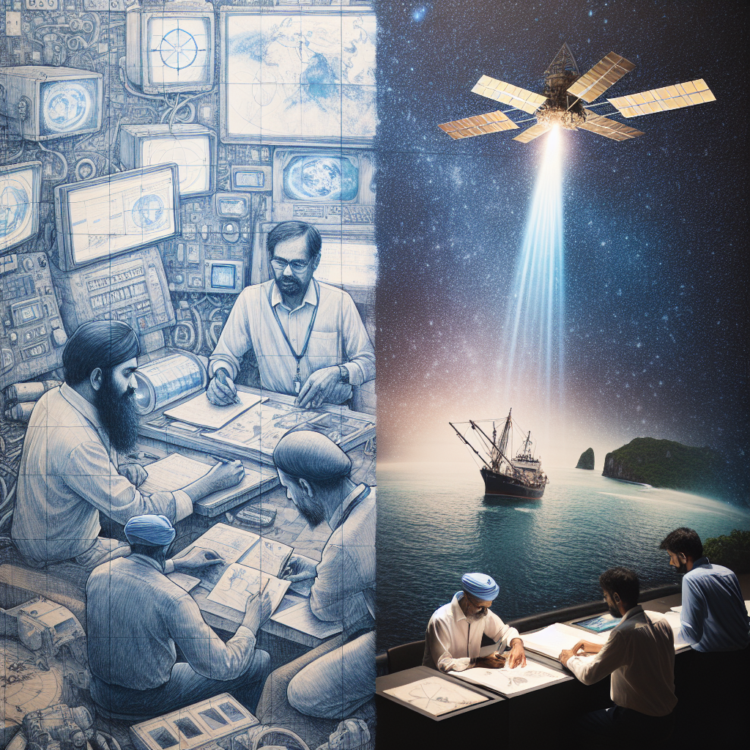Authorities in Mauritius will begin combatting illegal fishing with satellite technology thanks to a partnership between the University of Surrey and the Mauritius Research and Innovation Council (MRIC).
Authorities in Mauritius will begin combatting illegal fishing with satellite technology thanks to a partnership between the University of Surrey and the Mauritius Research and Innovation Council (MRIC).
The Nereus project combines satellite images with other ship location data. It uses artificial intelligence (AI) to detect anomalies, spotting ships of interest and working out where they are headed. Authorities can then check whether illegal fishing is taking place.
Dr Raffaella Guida, Reader in Satellite Remote Sensing at the Surrey Space Centre, at the University of Surrey, said:
“Catching vessels illegally fishing off an island such as Mauritius can be like finding a needle in a haystack. With our expertise in satellite data, we’ve been able to find a solution that identifies areas more at risk and supports the detection of suspicious behaviours at sea.
“This is an exciting milestone in this rewarding project – and we’re looking forward to seeing how our partners in Mauritius use it to protect their precious marine environment.
Nereus, funded by the UN Development Programme’s UNDP Ocean Innovation Challenge, is a potent addition to Mauritius’s tools for detecting illegal maritime activity. It offers the chance to detect it in near-real time.
The National Coast Guard accesses live satellite data. A plug-in developed at the University of Surrey will give the National Coast Guard access to Nereus as they do so. This will help them detect suspicious activity more precisely and then investigate it.
As the project nears completion, it will be celebrated at Mauritius’s first International Space Symposium on 18 April.
Dr Vickram Bissonauth, Director of Research at the Mauritius Research and Innovation Council, said:
“Three years after Mauritius launched its first satellite, we are proud to deploy our first downstream application of satellite data through Nereus.
“This is a concrete example of how space technology research can help us in addressing challenges we face as a small island developing state.
“Mauritius is ideally located, connected and equipped to build a thriving space sector. We’re looking forward to a bright future of extra-terrestrial exploration.”
Dr Mary Matthews from the United Nations Development Programme said:
“Illegal fishing is a multifaceted threat impacting economies, livelihoods, and nature.
“UNDP supports frontline solutions and working with Mauritius through the Surrey Space Centre and MRIC allowed us to use the transformative power of technology and develop vital tools to combat this issue. Nereus brings new hope to the fight against illegal fishing.”
ENDS




